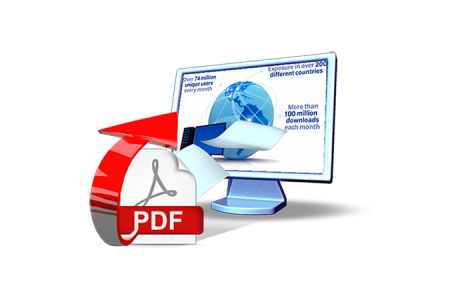Czytaj więcej:

Zobacz podgląd Cambridge Business English Dictionary pdf poniżej lub w przypadku gdy jesteś jej autorem, wgraj własną skróconą wersję książki w celach promocyjnych, aby zachęcić do zakupu online w sklepie empik.com. Cambridge Business English Dictionary Ebook
podgląd online w formacie PDF tylko na PDF-X.PL. Niektóre ebooki nie posiadają jeszcze opcji podglądu, a inne są ściśle chronione prawem autorskim
i rozpowszechnianie ich jakiejkolwiek treści jest zakazane, więc w takich wypadkach zamiast przeczytania wstępu możesz jedynie zobaczyć opis książki, szczegóły,
sprawdzić zdjęcie okładki oraz recenzje.


swojego dzieła, aby zachęcić czytelników do zakupu!

Średnia Ocena:
Cambridge Business English Dictionary
The Cambridge Business English Dictionary is ideal for business English students, business studies students and anyone using English in their work. Informed by the unique Cambridge English Corpus, the dictionary has over 35,000 words, phrases, and meanings, and includes business-specific vocabulary such as 'quantitative easing', 'crowdsourcing' and 'black knight'. It also includes help with how to use English naturally in business situations like meetings, conference calls, and emails.
| Szczegóły | |
|---|---|
| Tytuł | Cambridge Business English Dictionary |
| Autor: | Opracowanie zbiorowe |
| Rozszerzenie: | brak |
| Język wydania: | polski |
| Ilość stron: | |
| Wydawnictwo: | Cambridge University Press |
| Rok wydania: | 2012 |
| Tytuł | Data Dodania | Rozmiar |
|---|


Cambridge Business English Dictionary PDF Ebook podgląd:
Jesteś autorem/wydawcą tej książki i zauważyłeś że ktoś wgrał jej wstęp bez Twojej zgody? Nie życzysz sobie, aby pdf był dostępny w naszym serwisie? Napisz na adres [email protected] a my odpowiemy na skargę i usuniemy zgłoszony dokument w ciągu 24 godzin.
Pobierz PDF
Wgraj PDF
To Twoja książka? Dodaj kilka pierwszych stronswojego dzieła, aby zachęcić czytelników do zakupu!
Cambridge Business English Dictionary PDF transkrypt - 20 pierwszych stron:
Strona 1
BUSINESS
, Self-study and
classroom use
Advanced
with answers
Strona 2
BUSINESS
. VOCABULARY
Self-study and
classroom use
. Third Edition
Advanced
Bill Mascull
�CAMBRIDGE
� UNIVERSITY PRESS
Strona 3
CAMBRIDGE
UNIVERSITY PRESS
_University Printing House, Cambridge CB2 BBS, United Kingdom
One Liberty Plaza, 20th Floor, New York, NY 10006, USA
477 Williamstown Road, Port Melbourne, VIC 3207, Australia
4843/24, 2nd Floor, Ansari Road, Daryaganj, Delhi -110002, India
79 Anson Road, #06-04/06, Singapore 079906
Cambridge University Press is part of the University of Cambridge.
It furthers the University's mission by disseminating knowledge in the pursuit of
education, learning and research at the highest international levels of excellence.
www.cambridge.org
Information on this title: www.cambridge.org/9781316628232
© Cambridge University Press 2017
This publication is in copyright. Subject to statutory exception
and to the provisions of relevant collective licensing agreements,
n.o reproduction of any part may take place without the written
permission of Cambridge University Press.
First published 2004
Second Edition 2010
Third Edition 2017
20 19 18 17 16 15 14 13 12 11 10 9 8 7 6 5 4 3 2 1
Printed in Malaysia by Vivar Printing
A catalogue record for this publication is available from the British Library
ISBN 978-1-316-62823-2 Book with Answers
ISBN 978-1-316-62822-5 Book with Answers and Ebook
Cambridge University Press has no responsibility for the persistence or accuracy
of URLs for external or third-party internet websites referred to in this publication,
and does not guarantee that any content on such websites is, or will remain,
accurate or appropriate. Information regarding prices, travel timetables, and other
factual information given in this work is correct at the time of first printing but
Cambridge University Press does not guarantee the accuracy of such information
thereafter.
.+-!
f
Strona 4
Contents
INTRODUCTION 8 B Managing talent 2 24
THE HUMAN DIMENSION A Talent management 1
B Talent management 2
O The working environment 10 c Mentoring and coaching
A
B
My work is so rewarding
I like the teamwork
B Team building 26
c I like the perks A Teams
B Team players
II Management styles 1 12 c Stages of team life
A
B
Motivation 1
Motivation 2
Im The right skills 28
C Theory X and Theory Y A Hard and soft skills
B Emotional intelligence 1
II Management styles 2 14 c Emotional intelligence 2
A
B
Hygiene factors
Motivator factors
ID Equality and diversity 30
c Empowerment A Equality
B Diversity
II Employment and c Word combinations with 'diversity'
employability 16
QUALITY
m
A Outsourcing
B Employability What is quality? 32
c Freelancers
A Quality in manufacturing
II Flexibility and inflexibility 18 B Quality in services
c Widening the definition of quality
m
A Ways of working
B Job flexibility Quality standards 34
c Job protection
A Standards and certification
B Work-life balance 20 B ISO 9000 and others
A
B
Stress
The causes of stress
m Quality and people 36
c Quality of life A Investors in People
B The EFQM Excellence Model
B Managing talent 1 22
18 Striving for perfection 38
A Talent
B Recruiting talent A Benchmarking and best practice
c Managing talent B Six Sigma quality
Business Vocabulary in Use Advanced 3
Strona 5
COMPETITIVE STRATEGY
flJ Knowing your customers 1 58
Im Strategic thinking 40 A Market intelligence and market
research
A Strategy
B Research stages
B Word combinations with 'strategic'
c Companies and markets c Marketing plans
m Competition 42
fll Knowing your customers 2
A Segmentation
60
A Competition
B Customer groups
B 'Competing' and 'competitive'
c New technologies, new concerns
IIJ Companies and their
industries 44
m Knowing your customers 3 62
A Data and databases
A Competitive forces
B Customer relationship management
B SWOT analysis
c Be good at something fm Brands and branding
m
64
Key strategic issues 46 A Brand equity
B Brand positioning and differentiation
A Industries and their players
c Brand stretching
B Mergers and acquisitions (M&A)
c Make or buy? &) Global brands 66
fm Innovation 48 A Steps abroad 1
B Steps abroad 2
A Innovation and the development
c Think global, act local?
process
B Pioneers, followers and disruptors
LOGISTICS
c Shakeout and consolidation
m Preparing for the future 50
ID) Supply chain management 68
A Manufacturing
A Scenario planning
B Vertical integration
B Futurology
c Retailing
m
c Risk management
f!J Risk and uncertainty 52
Logistics
A Logistics
70
A Incurring risks
B Word combinations with 'logistical'
B Attitudes to risk
c Reverse logistics
c Insurance
MARKETING
l!J Outsourcing and
offshoring 72
fl) The four Ps and beyond 54 A Outsourcing
B Business process outsourcing
A The four Ps
B Three more Ps
c Offshoring
OJ Customer satisfaction 56
A The four Cs
B Customer expectations
- c Customer dissatisfaction
4 Business Vocabulary in Use Advanced
Strona 6
THE INTERNET AND ITS USES IIJ Balance sheet 1 90
U) Accessing the internet 74 A Assets
B Depreciation
A Broadband internet
B Mobile internet
c Moore's law
EfJ Balance sheet 2 92
A Liabilities
eJ Online communication 76 B Shareholders' equity
A Web 2.0
B Keeping in touch
ID Cashflow statement 94
c Website attractiveness A Cash inflows and outflows
m internet
Knowledge and the
78
B Types of cashflow
ID Comparing performance 96
A Knowledge creation A Profit and profitability
B Intranets B Investment ratios
c Global communities c Return on equity
D Leverage
Internet security
A Attack and defence
80
ID Shareholder value 98
B Cybercrime A Yield
c Privacy and confidentiality B Price-earnings ratio
ID The sharing economy
c Maximizing shareholder value
A The Uberisation process
82
m Accounting standards 100
B Disruption A Audits and their transparency
c Crowdfunding B International standards
IJJ Intellectual property 84 BOOM AND BUST
A Downloading
B Copyright infringement
m The business cycle 102
c Digital rights management A Key indicators
B The business cycle
COMPANY FINANCE c Boom and bust
IJiJ Financial performance 86 IE) Bursting bubbles 104
A Finance A Bubbles
B Financial reporting B The credit crunch
c The financial year c The real economy
D Shareholders, bondholders and lenders
Em Profit and loss account 88
A Accruals accounting
B Profit and loss
c Earnings
Business Vocabulary in Use Advanced 5
Strona 7
CORPORATE RESPONSIBl�ITY THE GLOBAL ECONOMY
ID Corporate social
responsibility 106
ID Globalization 118
A Paths to prosperity
A Ethics B GDP and GNI
Accountability and transparency c Globalizing trends
m
B
c Corporate social responsibility
Investment and debt 120
B Social reporting 108 A Direct investment
A Social reporting B Borrowing
B Word combinations with 'social' c Word combinations with 'debt'
c Labour standards
liJ Trade 122
CD Green issues 110 A Dismantling the barriers
A Environmental damage B Protected industries
Eco-friendly products c Fair trade
m
B
c Recycling
ID Climate change 112
International aid
A Humanitarian aid ·
124
A Global warming B Development aid
B Carbon management c The aims of aid
c Carbon trading
D Carbon capture Cl) Sustainable development 126
A Sustainability
Ii) Corporate governance 114 B Word combinations with 'sustainable'
A Board organization c Sustainable development goals
B Separation of roles
c Rewards for success (and fa Hure)
eJ Ethical investment 116
A Activist shareholders
B Controversial products
c Socially responsible investment
6 Business Vocabulary in Use Advanced
Strona 8
INTERCULTURAL ISSUES
m lntercultural teams 128
A Cultural issues
International teams
m
B
lntercultural meetings 130
A Meeting preparation
B Cultural preparation
c Running the meeting
m lntercultural networking 132
A The right attitude
B Good etiquette
c Business cards
WRITING
Gi) Business writing 1 134
A CVs
B Job enquiry
G9 Business writing 2 136
A Invitation
B Acknowledgement
(8 Business writing 3 138
A Outlines
B Openings and introductions
c Describing visuals
Ila Business writing 4 140
A Linking ideas
B Forecasts
Answer key 142
Index 160
Also available 176
Business Vocabulary in Use Advanced 7
Strona 9
Introduction
Who is this book for?
Business Vocabulary in Use Advanced builds on the success of Business Vocabulary in Use
Intermediate. It is designed to help advanced learners of business English to improve their
business vocabulary. It is for people studying English before they start work and for those already
working who need English in their job.
The emphasis is on language related to today's important, and sometimes controversial,
business issues.
You can use the book on your own for self-study, or with a teacher in the classroom, one-to-one
or in groups.
How is the book organized?
The book has 66 two-page units. The first 59 of these are thematic and look at the vocabulary of
business areas such as human resources, quality, strategy, logistics, IT, marketing, finance,
corporate responsibility and the global economy.
There are then three units which focus on the language of the skills needed for doing business
across cultures. The final four units develop business writing skills.
The left-hand page of each unit explains new words and expressions, and the right-hand page
allows you to check and develop your understanding of the words and expressions, and how
they are used through a series of exercises.
There is cross-referencing between units to show connections between the same word or
similar words used in different contexts.
There is an Answer key at the back of the book. Most of the exercises have questions with only
one correct answer. But some of the exercises, including the Over to you activities at the end of
each unit (see below), are designed for writing and/or discussion about yourself and your own
organization or one that you know.
There is also an Index. This lists all the new words and phrases which are introduced in the book
and gives the unit numbers where the words and phrases appear. The Index also tells you how
the words and expressions are pronounced.
The left-hand page
This page introduces new vocabulary and expressions for each thematic or skills area. The
presentation is divided into a number of sections indicated by letters: A, B, C, etc., with simple,
clear titles.
� In Business Vocabulary in Use Advanced, explicit reference is made to the business
� material in the Cambridge International Corpus (CIC) - business pages of newspapers,
business textbooks, and business meetings and discussions. The texts are stored in a database,
which is searchable in various ways to reveal the patterns of business usage. The database has
been exploited to identify typical word combinations found in the data, and there are notes
about their relative frequency.
As well as explanations of vocabulary, there is information about typical word combinations.
Again, the CIC has been a prime source of information about these.
There are notes on the relative frequency of different words, for example:
8 Business Vocabulary in Use Advanced
Strona 10
There are notes about differences between British and American English, for example:
BrE: labour; AmE: labor
BrE: trade unions; AmE: labor unions
The right-hand page
The exercises on the right-hand page give practice in using the new vocabulary and expressions
presented on the left-hand page. In gap-filling exercises, four-centimetre writing lines indicate
that more than one word is needed to complete at least one of the gaps in the exercise; two
centimetre writing lines indicate that one word only is needed in each gap. Some units contain
diagrams to complete or crosswords.
'Over to you' sections
An important feature of Business Vocabulary in Use Advanced is the Over to you section at the
end of each unit. There are sometimes alternative Over to you sections for learners who are in
work and for those who are studying pre-work. The Over to you sections give you the chance to
put into practice the words and expressions in the unit in relation to your own professional
situation, studies or opinions.
Self-study learners can do the section as a written activity. In many Over to you sections,
learners can use the internet to find more information.
In the classroom, the Over to you sections can be used as the basis for discussion with the whole
class, or in small groups with a spokesperson for each summarizing the discussion and its
outcome for the class. The teacher can then get students to look again at exercises relating to
points that have caused difficulty. Students can follow up by using the Over to you section as a
written activity, for example as homework.
The Answer key now contains sample answers for the Over to you questions.
How to use the book for self-study
Find the topic you are looking for by using the Contents page or the Index. Read through the
explanations on the left-hand page of the unit. Do the exercises on the right-hand page. Check
your answers in the Answer key. If you have made some mistakes, go back and look at the
explanations and the exercise again. Note down important words and expressions in your
notebook.
How to use the book in the classroom
Teachers can choose units that relate to their students' particular needs and interests, for
example areas they have covered in coursebooks, or that have come up in other activities.
Alternatively, lessons can contain a regular vocabulary slot, where students look systematically
at the vocabulary of particular thematic or skills areas.
Students can work on the units in pairs, with the teacher going round the class assisting and
advising. Teachers should get students to think about the logical process of the exercises,
pointing out why one answer is possible and the others are not (where this is the case).
We hope you enjoy using Business Vocabulary in Use Advanced.
Business Vocabulary in Use Advanced 9
Strona 11
, . .
' , '
'
.
. . .· . ... ' . :··' :
1
' ',,
mhe wo,l<ing envir:or,meot · · . . . . :.. · . ; .
My work is so rewarding
'I work in advertising. I love my work! It's really
rewarding and stimulating- satisfying and
interesting. Originality and creativity are very
important in this industry, of course; we have to
come up with - produce - lots of new ideas.
'No two days are the same. I could be contacting
film companies for new advertising campaigns one
day and giving client presentations the next. I like the
client contact and I am very much hands-on -
involved with the productive work of the agency
rather than managing it.
'When I joined the agency, I hit it off with my colleagues immediately. I still get on well with them
and there's a very good rapport between us. This is all part of my job satisfaction.'
I like the teamwork
'I'm an aircraft engineer. I work on research and
development of new aircraft. I love putting ideas
into practice. I like working on my own, but it's also
great being part of a team. I like the teamwork
(see Unit 9) and the sense of achievement when we
do something new. And of course, the planes we
produce are very beautiful.
'Is there anything I don't like? I dislike days when I'm
chained to a desk. I don't like admin and
paperwork. Sometimes I feel I'm snowed under -
there's so much to do I don't know how to deal with
it. And in a large organization like ours, there can be a
lot of bureaucracy or red tape - rigid procedures -
that can slow things down.'
I like the perks
'I'm in luxury goods sales. I have some nice perks,
like a company car. I have to meet demanding sales
targets every month, so the work can be very
stressful (see Unit 6). But I enjoy the flexibility that
I have in working when I want to without someone
breathing down my neck all the time. Unlike my
husband, who has to travel into London every day,
I don't have to commute to an office - I'm out seeing
clients most of the time. My boss allows me to work
from home when I'm not seeing clients. My office
uses hot-desking, so when I do go into the office
I use whichever desk is free. I only get two weeks a
year vacation time. If there's a family emergency,
I can take time off without having to ask my boss.
I work quite long hours - about 60 hours a week -
but I enjoy my job.'
10 Business Vocabulary in Use Advanced
Strona 12
1.1 Complete the sentences with expressions from A opposite.
1 Work that is satisfying and interesting is .............................................................................. and
2 If you spend time with customers, you have ............................................................................
3 If you have a good working relationship with your colleagues, you ........................................................
them.
4 If you do the actual work of the organization rather than being a manager, you are
5 If you want to say that work is not repetitious, you can say'............................................. ................................
6 and are when you have new and effective
ideas that people have not had before.
1.2 The aircraft engineer talks about his work. Complete his statements with expressions from
B opposite.
1 I don't always like working with other people. I like ....................................................... .......................
2 It's great to see what I learnt during my engineering course at university being applied in actual
designs. I like ........................ ......................................................
3 I hate it when there is a big stack of documents and letters on my desk that I have to deal with.
I don't like and ..............................................................................
4 I love the when we all work together to create something new.
5 It's rare, but sometimes when I come into the office and see a huge pile of work waiting for me,
I feel
6 When we see a new plane fly for the first time, we all feel a great
7 I get frustrated when you have to get permission to spend anything over £50. I don't like
.............................................................................. and .............................................................................
1.3 Complete what these people say with appropriate forms of words and expressions from
C opposite.
1 Our boss comes into the office four times a day to see what we're doing. She's always
2 · Being on the train two hours a day to and from work doesn't bother me. I quite like
3 I start at 6 in the morning and finish at 8 in the evening. I work really ........
4 Sometimes I work from home, sometimes in cafes and sometimes I go into the office.
I really like the ... .............. . .... ...................... ...
5 She even works on holiday, so it doesn't really count as ...
6 I hated working in an office. When there were family 'emergencies', I didn't like to ask for
7 I'm a car salesman and I have to sell at least ten cars every month - it's very ...... ....... ............................... .
8 When you work in a travel agency, getting free holidays is one of the .........................................................................
9 I sit at home all day working and never see anyone. I don't like ......................................................................................
Think about your job or one you would like to have. Do you, or would you, work on your own, or as
part of a team? Which do you prefer?
Business Vocabulary in Use Advanced 11
Strona 13
2 Management styles 1
Motivation 1
Yolanda is a senior manager of a car rental firm:
'I believe that all our employees can find
satisfaction in what they do. We give them
responsibility-the idea that the decisions th¢y
take have a direct impact on our success - and
encourage them to use their initiative - they
don't have to ask me about every decision they
make. My style of managemenfis participative -
employees take part in the decision-making
process. They are given a sense of
empowerment (see Unit 3).
'We hope this feeling of empow�rment gives employees the feeling that they are valued - with
management knowing the effort they make. We believe that all this leads to a higher sense of
motivation - interest, enthusiasm and energt-among employees. When everyone feels motivated,
morale is good and there is a general feeling of well-being in the organization. This leads to
improved job satisfaction.'
Motivation 2
Xavier is a factory manager:
'I don't believe in all this talk about motivation.
My subordinates - the people working under
me-are basically lazy. They need constant
supervision - we have to check what they are
doing all the time. Some people think this is
authoritarian, but I think it's the only way of
managing. There have to be clear rules of
discipline-you have to be able to tell
subordinates what is right and wrong, with a
consistent set of disciplinary procedures.
'Decisions must be imposed from above without
consultation - we don't discuss decisions with
workers, we just tell them what to do.'
Theory X and Theory Y
Xavier believes in what the US management thinker Douglas McGregor in The Human Side of
Enterprise called Theory X-the idea that people dislike work and will do everything they can to
avoid it.
Yolanda believes in Theory Y-the more advanced view that, given the right conditions, everyone
has the potential to find satisfaction in work.
12 Business Vocabulary in Use Advanced
Strona 14
2.1 Yolanda's employees are talking about her management style (see A opposite). Replace each
underlined item with an expression from A, keeping the rest of the sentence as it is. Pay attention to
the grammatical context. The first one has been done as an example.
1 She knows exactly what's involved in our jobs. She makes us feel she understands the effort we
make. vo..w.ed,
2 She encourages us to do things without asking her first.
3 The feeling among employees here is very good. We feel really involved and want to work towards
the company's goals.
4 We have a real sense of the idea that our efforts are important for the success of the company.
5 We have a real sense of liking what we do and feeling good when we achieve specific goals in our
work.
2.2 Look at Band C opposite. Read the text and answer the questions.
cGregor's ideas about managerial behaviour had a profound effect on
management thinking and practice. His ideas give a frame of reference for
managerial practice. His Theory Y principles influenced the design and
implementation of personnel policies and practices. Today they continue to influence
participative styles of management and the continued practice of staff performance
appraisal -the evaluation of employees' work.
McGregor defined theories that he felt underpinned the practices and attitudes of
managers in relation to employees. These were evident from their conversations and
actions. The two sets of ideas were called Theories X and Y. McGregor was saying
that what managers said or exhibited in their behaviour revealed their theories-in-use.
These led managers to pursue particular kinds of policies and relationships with
employees. Regrettably, McGregor's Theory Y was interpreted and promoted as a
'one-best-way', i.e. Y is the best! Managers or aspects of their behaviour became
labelled as Theory X, t�e bad stereotype, and Theory Y, the good. McGregor's ideas
were much informed by Abraham Maslow's model of motivation. People's needs
provide the driving force which motivates behaviour. Maslow's ideas suggested that
worker dissatisfaction with work was due not to something intrinsic to workers but to
poor job design, managerial behaviour and too few opportunities for job satisfaction.
1 What have the long-term effects of McGregor's thinking been, according to the article?
2 Which factors reveal whether a manager believes more in Theory X or Theory Y?
3 Name two things that result from these factors.
4 Did McGregor think that Theory X or Theory Y represented the best way of doing things?
5 Who influenced McGregor's thinking? What did this thinker believe to be the main factor in
determining people's behaviour?
6 Is employee dissatisfaction due to something within employees themselves, according to this
thinker? Why? I Why not?
Over to you
Write a memo to the head of your organization or one you would like to work for, suggesting ways to
encourage initiative among employees.
Business Vocabulary in Use Advanced 13
Strona 15
Hygiene factors
Yolanda, the car rental manager we met in the previous unit, went on a management course. She,
looked at the work of Frederick Herzberg*, who studied what motivates employees. Here are the
notes she took:
Some aspects of work can lead to dissatisfaction if they are not at a high
enough standard.
These are what Herzberg calls the hygiene factors:
supervision - the way employees are managed
policy - the overall purpose and goals of the organization
working conditions - the place where you work, hours worked, etc.
salary
peer relationships - how you relate to and work with others on the same level of
the organization
security - level of confidence about the future of your job
Other aspects of work can give positive satisfaction. These are the motivator factors:
achievement - the feeling that you have been successful in reaching your goals
recognition - the feeling that your employers understand and value what you do by
giving positive feedback, which means telling you what a good job you are doing
the work itself - the nature and interest of the job
responsibility - when you are in charge of something and its success or failure
advancement - how far you will be promoted in the organization and/or how far you
will go up the career ladder
personal growth - how you develop personally in your work, and your opportunities
to do this
Note the spelling
of career.
- Empowerment
Now look at the more recent idea of empowerment (see Unit 2).
Empowerment is the idea that decisions, where possible, should be made by
employees who are close to the issues or problems to be solved, without having to
consult their managers further up the hierarchy. In other words, managers have to
delegate as much as possible. Delegation is one of the keys to employees being
empowered in this way. Also, organizations become less hierarchical, with fewer
management levels.
*Work and the Nature of Man, 'One More Time: How Do You Motivate Employees?' Harvard Business Review, 2008.
14 Business Vocabulary in Use Advanced
Strona 16
3.1 Look at this job advertisement.
Match the underlined items (1-6) DUVAL LEGAL TRANSLATOR
with the hygiene factors in A •/\1\JD · ENGLISH-FRENCH
opposite.
SMITH Paris (1) €80,000
Large Anglo-French law firm seeks legal translator to translate and
correct French and English legal documents. Legal qualifications
and experience essential.
Based in the firm's busy translation department, you will work
(2) under the head of translation (3) as part of a team of five
translators (4) in line with the overall policies of the firm.
You will work (5) a 35-hour week, with a (6) one-year contract in
the first instance.
Email CV to [email protected]
3.2 Vanessa Holt got the job in the advertisement in 3.1 above. Three months later, she writes an email
to a friend. Complete the gaps in the email using expressions from B opposite.
••• From: [email protected]
Subject: Back to the UK?
Date: 14 November
To: [email protected]
Hi Jane, How are you? I've been at Duval and Smith, an Anglo-French law firm in Paris,
for three months now. I've had experience of translating a lot of different documents,
so (1) is interesting enough, but I don't get any
(2) for the work I do - my boss never says anything. He
never gives us any (3) for example, he never lets us deal
with clients directly. I never get a sense of (4) my boss
takes all the credit for the work we do.
There are quite good opportunities for promotion and (5) ............................................................................
at Duval and Smith, but I'm not sure I want to stay. I think there must be better opportunities
elsewhere for me to develop, and as (6) is important to me,
I've decided to move back to the UK and look for a job there.
So hope to see you in London soon - I'll give you a call.
All the best
3.3 Complete this table with words from C opposite.
Verb I Noun I Adjective
empower empowered
consultation consulted
- hierarchical
delegated
Over to yc:,11
Describe your own organization, or one you would like to work for, in relation to Herzberg's motivator
factors.
Business Vocabulary in Use Advanced 15
Strona 17
4 Employment and employability
.Outsour�ing
Nigel, a 30-year-old information technology (IT) specialist, talks about his career so far:
'I used to work in the IT department of a bank. All the IT work was done in-house. I thought I had a
job for life. But then-one day the work was outsourced to a specialized IT company called IT
Services (ITS), based in India. Outsourcing abroad like this is offshoring (see Unit 32). The bank saw
outsourcing as a way of saving money and keeping its competitive edge - advantage. They said that i
it would be more cost-effective - would cost less - to concentrate on their core activities - most
important ones.
'Luckily, the bank didn't make me redundant - I didn't lose my job - and I started working for ITS
instead. At first I didr)'t know what to expect, but now I am very happy. We work with a lot of
different clients - I'm a consultant and I give them advice.'
Employability
'ITS put a lot of emphasis on professional development: We often go on training courses so that we
can keep'up with current trends - the way things are changing in the industry.
'ITS tell us that we may not have a job for life with the�O[Ppany, bul that our up�to�date skills will
mean that we will always be employable. Companies �nd governments talk about the importance of
Ufelong learning- continuing to develop our knowledge by going on courses, reading, etc.
'.In the next year or two, I may make a career move and join another company.'
Freelancers
'When I'm about 40, I want to set up on my own as a freelancer offering consultancy services to
different companies. The idea of working freelance on different projects for different clients
attracts me.'
�ome experts say that increasing numbers of people will work this way in the future, as companies
outsource more and more of their work because they want to concentrate on their core activities.
You can say freelancers or freelances. The corresponding
adjective is freelance, as in freelance work.
16 Business Vocobuloiy in Use Advone;¢d
Strona 18
4.1 Match the two parts of these extracts containing words and expressions from A opposite.
1 "It's shown us that you don't have to do
everything in-house," he said.
D a in-house are evolving towards full
outsourcing.
2 Critics say that he offshored jobs to
India and
D b frequently outnumber the full-time
permanent employees.
3 I'm an independent consultant in an area
where we consultants
D c are disappearing as the country adjusts to
the internet economy.
4 Insurance companies that usually
managed everything
D d competitive edge in cost and productivity.
5 The new strategy has restored the firm's D e made employees redundant to maximize
the company's multi-billion profits.
6 Some Japanese traditions, such as jobs
for life,
D to outsource to developing nations where
wages are lower.
7 The economics of offshoring will force
multinational corporations
D g "Let's use the market to get the most
cost-effective benefit."
4.2 Complete the sentences with correct forms of expressions from
A, B and C opposite.
1 There's a lot to be said for .. ... . It
would encourage more working men and women to refresh
their skills on university short courses tailored to their needs.
That way they can keep up with ...... . .............. .........................................................
the latest thinking in their area.
2 I love my new job. This is definitely the best
. I could have made.
3 The new chief executive fired 11,000 employees and sold
several business units. Non-core ......................... ..................................................
were outsourced.
4 Some former advertising executives offer
......... .............. ...... ......... ............... ..... for ad agencies, bringing
expertise the agencies do not have themselves.
5 Some 'creative' businesses, like design services, are kept
going by work done by and have
hardly any permanent staff.
6 Of course, there are advantages to doing some things
You don't have to explain to outsiders what you want them to do.
Over to _ �
_,,."'�M'.Jf'C,...,.-�....
.,........ ...�- "'"' ,._'!,;.�...:,,.,.......
• Would it be possible to do your job as a freelancer? Why?/ Why not?
• What are the advantages and disadvantages of being a freelancer?
• What are the advantages and disadvantages for companies who use freelancers?
Business Vocabulary in Use Advanced 17
Strona 19
5 Flexibility and inflexibility ,'
Ways of working
The US is often described as having a flexible job market with flexible working. For example:
• temporary workers who only work for short periods when they are needed, either on a
temporary contract with a company or through a temp agency
• part-time workers who work less than the maximum number of hours each week
• job sharing where two people share a particular job, each of them working part-time
Job flexibility
Another aspect of job flexibility in the US is that companies can hire and fire employees easily.
When letting people go - telling employees that they are no longer required - companies only have
to give them very short notice - warning - and relatively small redundancy payments - money to
compensate for losing their job.
Unemployment benefits - the money paid to people without jobs - are very low. It is said that all
these measures make for a fle.xible job market and encourage job creation. Critics say that this
approach leads to job insecurity, with employers able to get rid of employees too easily.
Job protection
France is a country with a very different approach. Companies in trouble are only allowed to make
employees redundant after a long period of consultation. If employees are made redundant, they
receive generous redundancy payments and then unemployment benefits. The government says
people need this sort of job protection, and trade unions - organizations that protect the interests
of workers - are fighting hard to keep it.
Payments to employees such as sick pay and parental leave - when they have time off following
the birth of children - are also very generous. Mothers get long paid maternity leave and fathers get
paternity leave. But the social charges which employers and employees have to pay the
government are very high.
Critics say that these policies contribute to a rigid labour market - one with too much job protection.
They say that this sort of inflexibility discourages job creation and leads in the long run to higher
unemployment and slower economic growth.
BrE: labour; AmE: labor
As a consequence, companies may look abroad for
BrE: trade unions; AmE: labor unions
cheaper bases and workforces.
18 Business Vocabulary in Use Advanced
Strona 20
5.1 Which type of work or workers in A opposite is each of these people referring to?
1 I work at the local council for two days a week, and my
friend works in the same job on the other three days.
2
3
I'm on a job at Clarkson's until the end of next week.
Then I'll try and find something else.
5.2 Two American managers working in France, Melinda and Nat, are talking about the issues in Band C
opposite. Replace the underlined expressions with items from those sections. Pay attention to the
grammatical context.
Melinda: It's ridiculous! We can't (1) get rid of people without a lot of (2) meetings and discussion
with (3) employee organizations, government officials, and so on. We have to keep even
the laziest, most incompetent people.
Nat: I know what you mean. I don't have the opportunity to (4) recruit and get rid of people as
I want! This sort of (5) rigidity must be bad for the job market. (6) The number of people
without jobs in this country is very high.
Melinda: It's a nightmare! If you do want to get rid of people, you have to (7) tell them three months
in advance.
Nat: Yes, and you should see the (8) amount of tax I have to pay for each of my employees just
so they can get (9) money when they fall ill, and so on.
Melinda: We should move back to the US. There the job market is (10) one that gives employers a
lot of freedom. When the economy is going well, the level of (11) new jobs that can be
created there is incredible.
5.3 Look at the expressions in Band C opposite. Say if these statements are true or false.
1 When companies talk about letting employees go, they make them redundant.
2 One person's job flexibility might be another's job insecurity.
3 In flexible job markets, hiring and firing is complex.
4 Employee benefits are paid for through social charges.
5 Rigidity is another word for inflexibility.
6 When fathers take parental leave, this is called maternity leave.
7 The cost of job protection might be higher unemployment.
Over to
• Is your country more like the US or France in its ways of working?
• Think of one advantage and one disadvantage of flexible working from the point of view of
employers.
Business Vocabulary in Use Advanced 19











